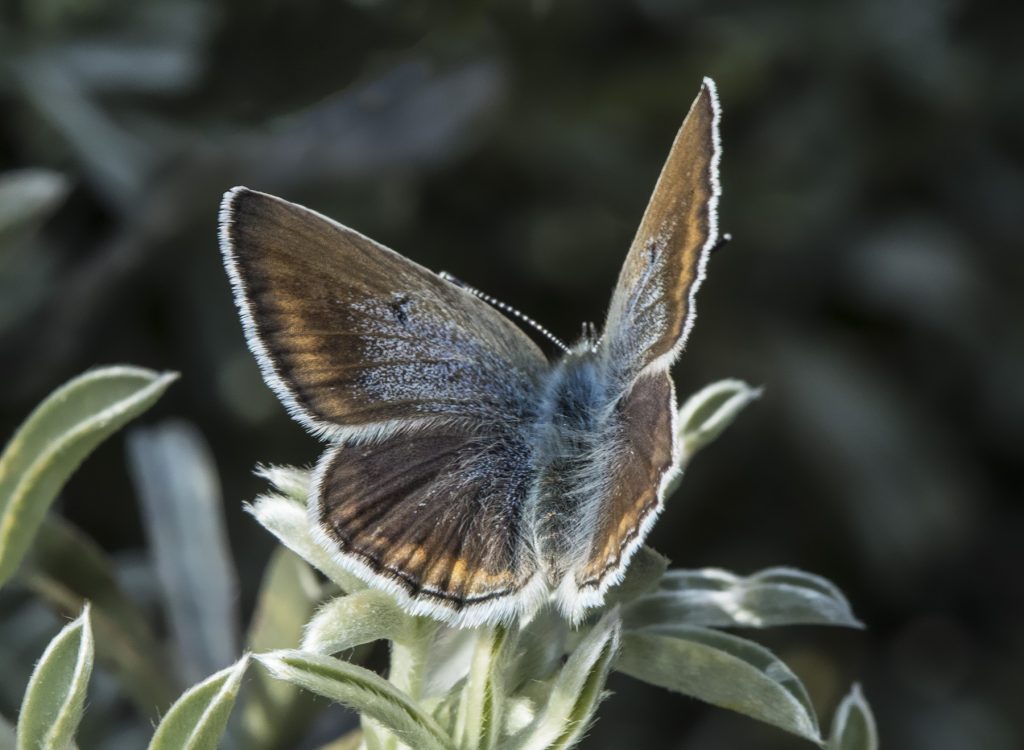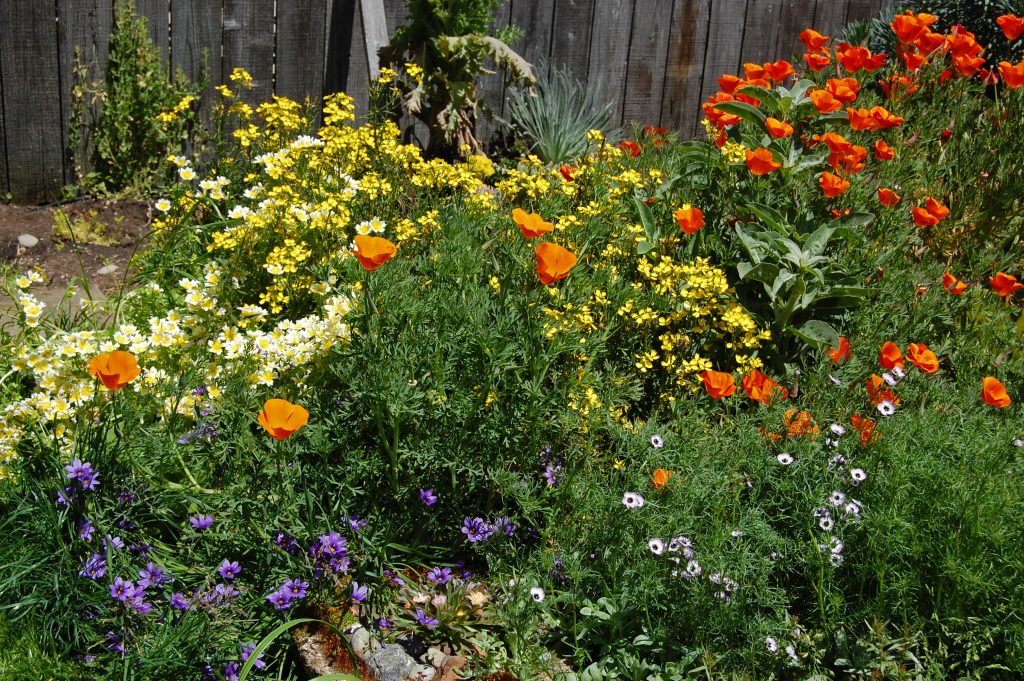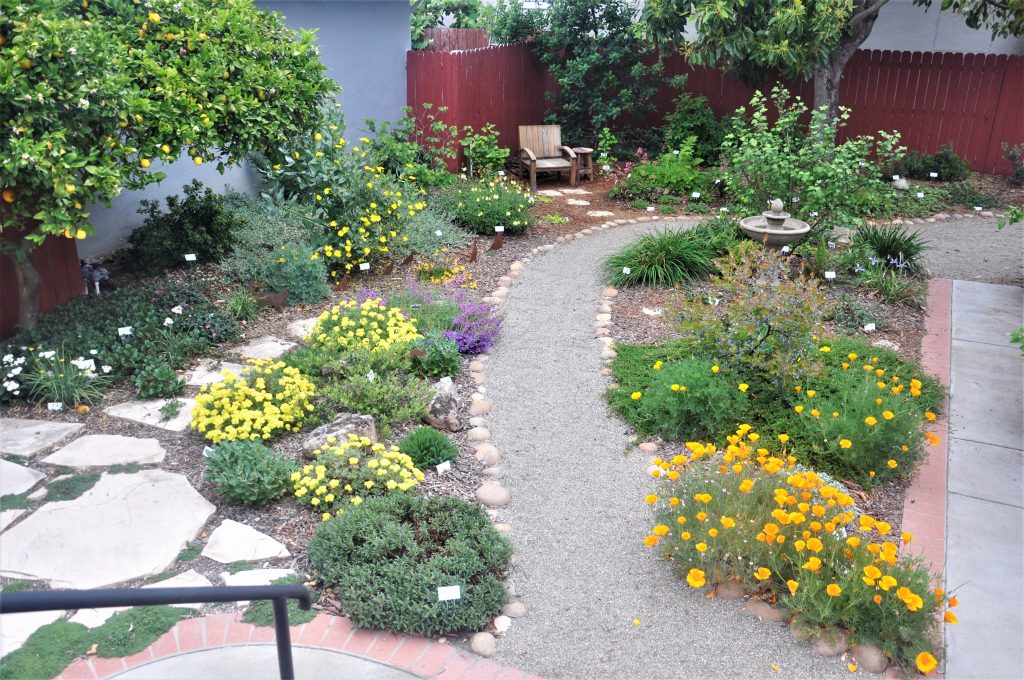Become a Bay-Friendly gardener and steward of our beautiful estuary!
HOW YOU CAN GARDEN WISELY AND WHY YOU SHOULD
As citizens living in the Morro Bay watershed, everything we do impacts the bay.
Our yards and gardens are great places to connect with nature, and it is important to remember that how we manage these spaces impacts the surrounding habitat and bay. There are many things you can do that lessen your negative impact and actually improve the health of the bay.
It turns out that gardening wisely ends up benefiting you, too!
GARDEN WITH NATIVE PLANTS
Native plants are those that occur naturally in the region in which they evolved. Planting species that are native to California in your garden will have meaningful effects on the surrounding habitat, your water bill, and more.
Using native plants saves you valuable time, money, and water!
Here in Morro Bay (and much of California) we have a Mediterranean climate, which means our summers are hot and dry and our winters are mild and rainy. Since native plants are adapted to these local environmental conditions, they require far less water and maintenance, saving you time, money, and water. Exotic (non-native) species can thrive in our climate, but usually only with fertilizer, more water, and constant care. Native plants are already adapted to our soil, climate, and wildlife, and therefore usually require hardly any maintenance, significantly less water, and minimal fertilizer once established.
Other water-wise tips:
- Hydrozoning – group plants together based on water needs to prevent over/under watering!
- sweep driveways and walkways instead of using the hose
If you use sprinklers, check out these tips on sprinkler programming, maintenance tips, other water-saving tips.
Back to top
Native plants provide food and shelter for native wildlife and insects. Using native plants is literally for the birds (and other wildlife)!
Even though California is home to the highest number of native plant species in the nation, few home gardens and landscapes reflect the richness of California’s native flora. The trend of highly manicured lawns has created a human-dominated landscape that no longer supports functioning ecosystems, and some remaining natural areas are no longer large enough to support wildlife. When you garden with native plants, you can admire the natural beauty of California while also contributing to the restoration and conservation of California’s diverse native wildlife and insects by providing a patchwork of habitat.

To see what species of birds specific native plant species will attract in Morro Bay, check out the Audobon’s database.
To see what native species to plant for specific purposes (e.g. ground cover plants, vines, etc.) see the California Native Plant Society’s database.
Back to top
Forgot to feed your plants? No problem – native plants require far less fertilizer than exotic species, and they have developed their own defenses against pests!
Because native plants have evolved with the soil and climatic conditions of our region, they do not require fertilizer once established. Because exotic plants and grasses used for lawns are not naturally suited for our area, they need fertilizer to grow lush and pesticides to fend off insects they are not used to. Unfortunately, these products are damaging to your garden and the surrounding environment. Thankfully, native plants require barely any fertilizer, are resistant to natural pests, and actually attract beneficial insects to your garden such as ladybugs, lacewings, praying mantises, and pollinators such as bees and butterflies.
Fertilizer
Synthetic and chemical fertilizers are high in soluble nitrogen, which results in a quick but unhealthy growth in plants. A slow release fertilizer with insoluble nitrogen will not only last longer, but will likely reduce the amount of unused nitrogen that can run off yard into bay. Once in waterways, nitrogen can cause harmful algal blooms. These blooms block the sun’s rays and can kill submerged aquatic vegetation (like eelgrass) and can reduce the amount of oxygen in the water that fish and other animals need to breathe, resulting in massive fish die offs.
Click here for some synthetic fertilizer alternatives.
If using fertilizer:
Do’s:
- Do follow the directions so you can avoid over fertilizing.
- Do apply fertilizer just twice a year: once in the spring to help new growth, and once in the fall to assist healthy root growth.
Don’ts:
- Don’t spill fertilizer on sidewalk, driveway or street – spilled fertilizer gets washed away in the rain and will end up in the creeks and eventually the bay.
- Don’t overwater after fertilization or apply fertilizer right before a rainstorm for the same reasons!
Pesticides
Like fertilizers, pesticides can be washed off plants by rain and sprinklers, out of your garden, and into our waterways. Even at low levels, pesticides are toxic to fish, frogs, turtles, mussels, waterfowl, and other wildlife. Incorrect pesticide use is one of many factors contributing to the decline if fish, amphibians and other aquatic species across the United States. Protection of wildlife and water quality is possible when using pesticides – if they are selected wisely, applied safely, and used in combination with other pest-control measures – avoiding pollution of our surface waters and contamination of aquatic life.
Do’s:
- Do make sure product is for specific problem in your garden: You wouldn’t open your medicine cabinet and take cough syrup for a headache, so be sure to find the cause of the problem in your garden before you try to treat it.
- Do read all labels and use products with the least amount of toxins.
- Do avoid products with diazinon, a pesticide with potentially adverse impacts on the biotic communities of local waterways.
- Do try mulch as an effective controller of weeds.
- Do eliminate weeds before they go to seed.
Don’ts:
- Don’t use broad spectrum pesticides. These products are not selective and kill beneficial insects.
Back to top
Itching to get some native plants into your garden? Here’s where you can find them:
Want to dig deeper into Bay Friendly Gardening? Check out these resources below:
California Friendly – A maintenance guide for landscapers, gardeners, and land managers
The Environmental Protection Agency’s Water Smart Guide
The Damaging Effects of Fertilizers on Marine Environments
Information on Non-Toxic/Low-Toxic Pesticides
Questions? Call the Master Gardeners hotline for SLO County: (805) 781-5939

